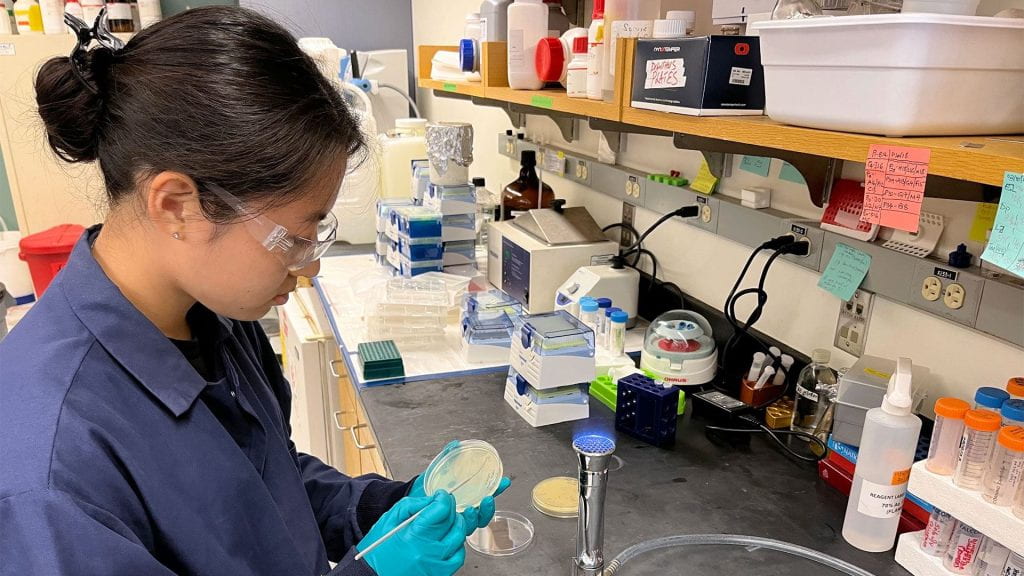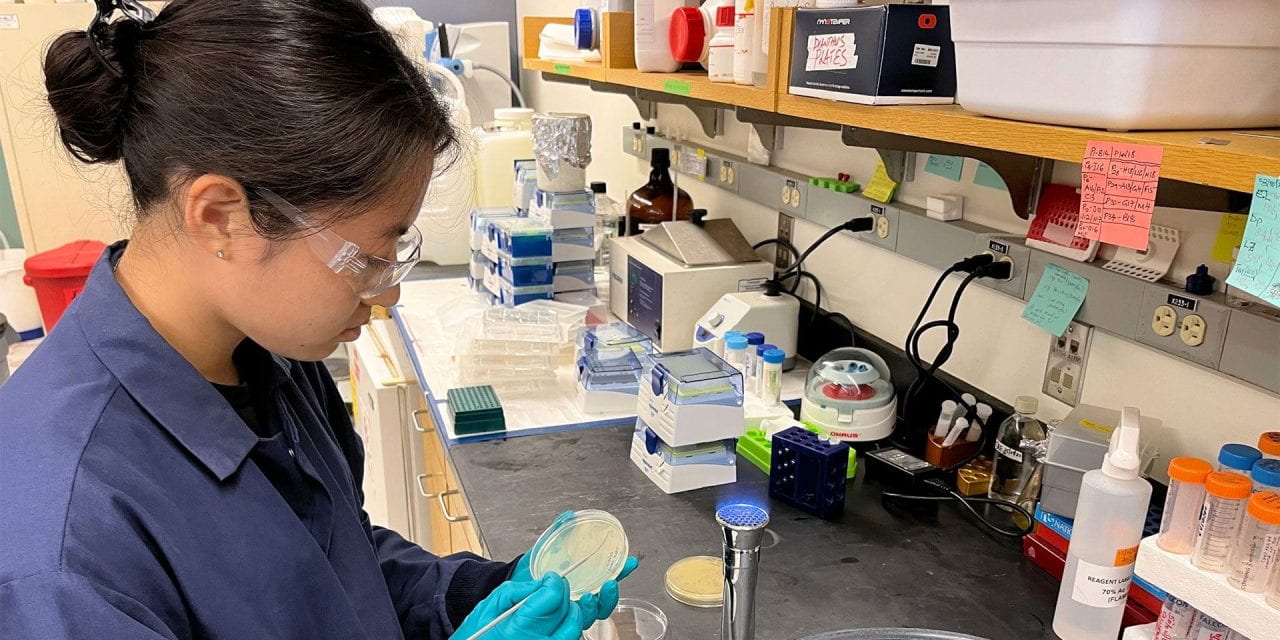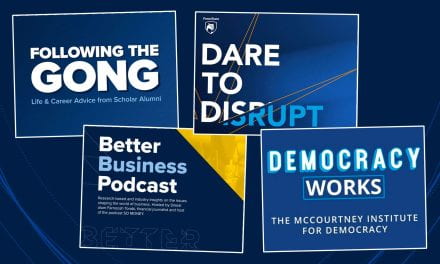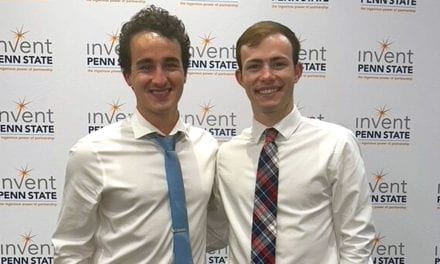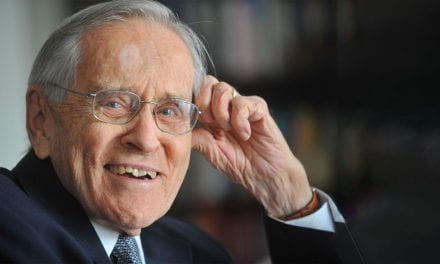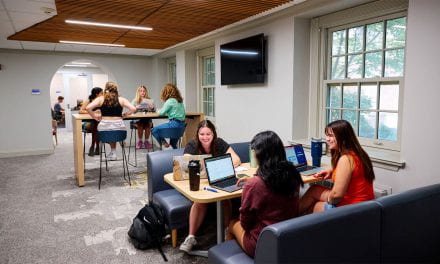In 2019, Traci Giuliano, a professor of psychology at Southwestern University in Georgetown, Texas, published a paper in the journal Frontiers in Psychology titled, “Guiding Undergraduates Through the Process of First Authorship.”
In it, she notes that 29 of her 33 post-graduate school publications featured work by undergraduates, 24 of which had an undergraduate first author. However, her experience seems far from typical on a larger scale. Earlier in the article she wondered if undergraduate first authors were a bit of a unicorn.
“A literature search revealed not a single article on the topic of undergraduates publishing as first author,” Giuliano wrote. “Without any data, it’s hard to know for certain how common it is for undergraduates to publish as first authors, but informal discussions with psychology colleagues around the world who collaborate with undergraduates suggest that it is far less common than undergraduates publishing as non-lead authors.”
Guiliano would have been interested to know that over 1,500 miles away, Jian Yang, professor of biomedical engineering at Penn State, guided a Schreyer Scholar to publish a research paper as a first author in just her second year on campus.
Yuki Yoshida was a senior at State College Area High School at the height of the COVID-19 pandemic and was dealing with the challenges of remote learning. But she describes herself as having a high level of internal motivation, and that helped her to not stumble during difficult times. Yoshida actually went far beyond her high school curriculum and sought out research opportunities being offered by Penn State faculty.
“I couldn’t find any in-person labs because they all shut down,” Yoshida said. “There was one professor who agreed to a virtual opportunity to write a review paper, though.”
That professor was Jian Yang whose research focuses on cell signaling and cancer, nanomedicine and drug delivery, tissue engineering and regenerative medicine. Right away, Yoshida made a positive impression on him.
“It was amazing to see how much she had already accomplished as a high school student and was even wondering how much more she could handle,” Yang said. “So, I decided to engage her in my research.”
His area of expertise, and research into those topics more specifically, became a burgeoning interest for Yoshida because of a difficult medical situation her family had to face.
“Earlier when I was in high school, my mom was diagnosed with benign metastasizing leiomyoma, but the doctors didn’t know what it was right away,” Yoshida said. “It started in the uterus, so my mom had surgery to remove her uterus, but then they found a lot of little bumps in her lungs. Because they showed up as white on the CT scan, the doctors thought it was cancer.
“They wanted to remove one fourth of her lung to biopsy and test for cancer, which is a large amount,” she continued. “She didn’t want an invasive procedure again, so I started looking for non-invasive alternatives. I was reading research papers and comparing my mom’s CT scan images when I learned about benign metastasizing leiomyoma, and that it’s commonly found in female patients from Asia.
“I gave my mom the research papers that I read, she took them to her doctor, and the doctor confirmed that it was a combination of benign metastasizing leiomyoma and endometriosis that came from her uterus.
“That experience sparked my interest in how research can translate to medicine, which is something I was already interested in.”
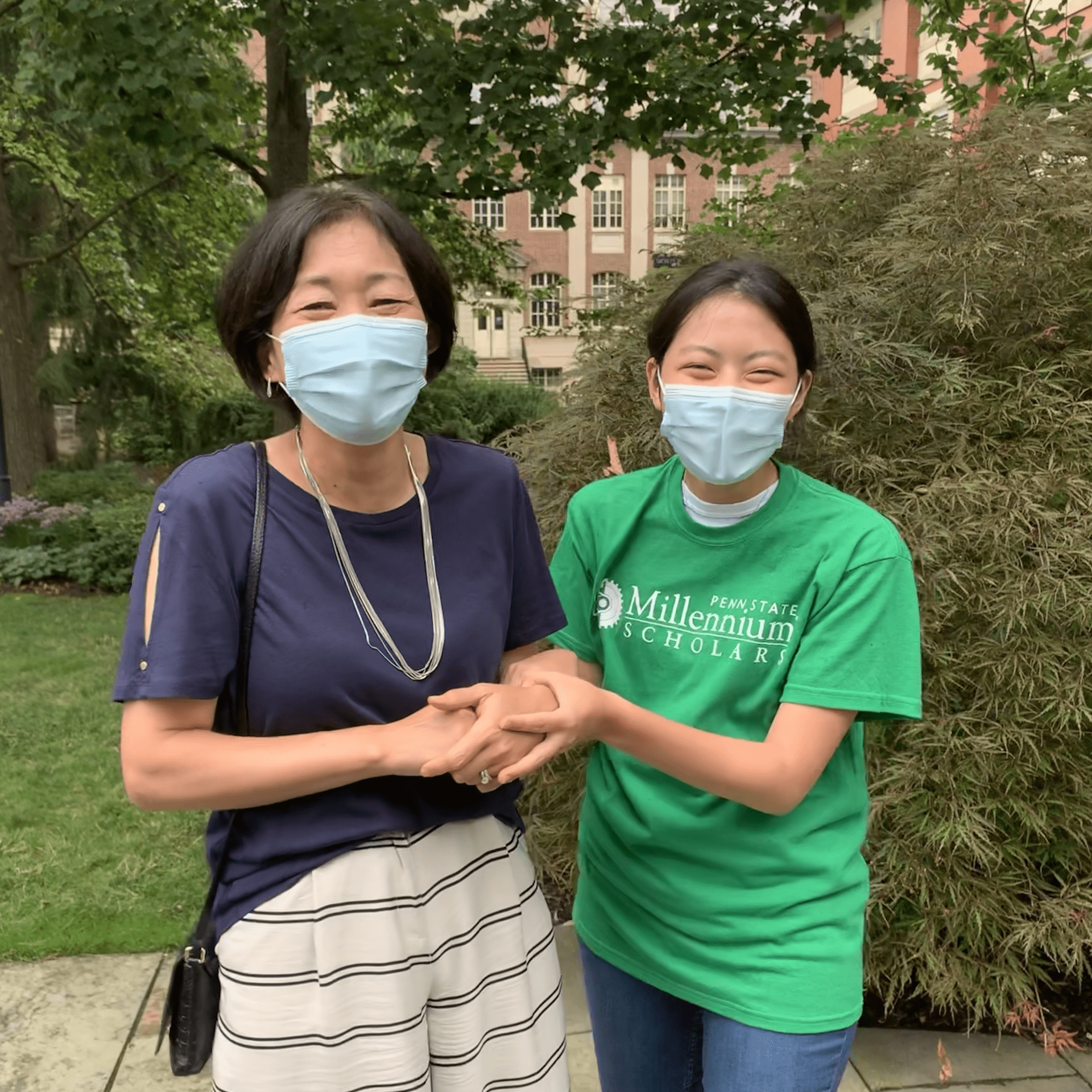
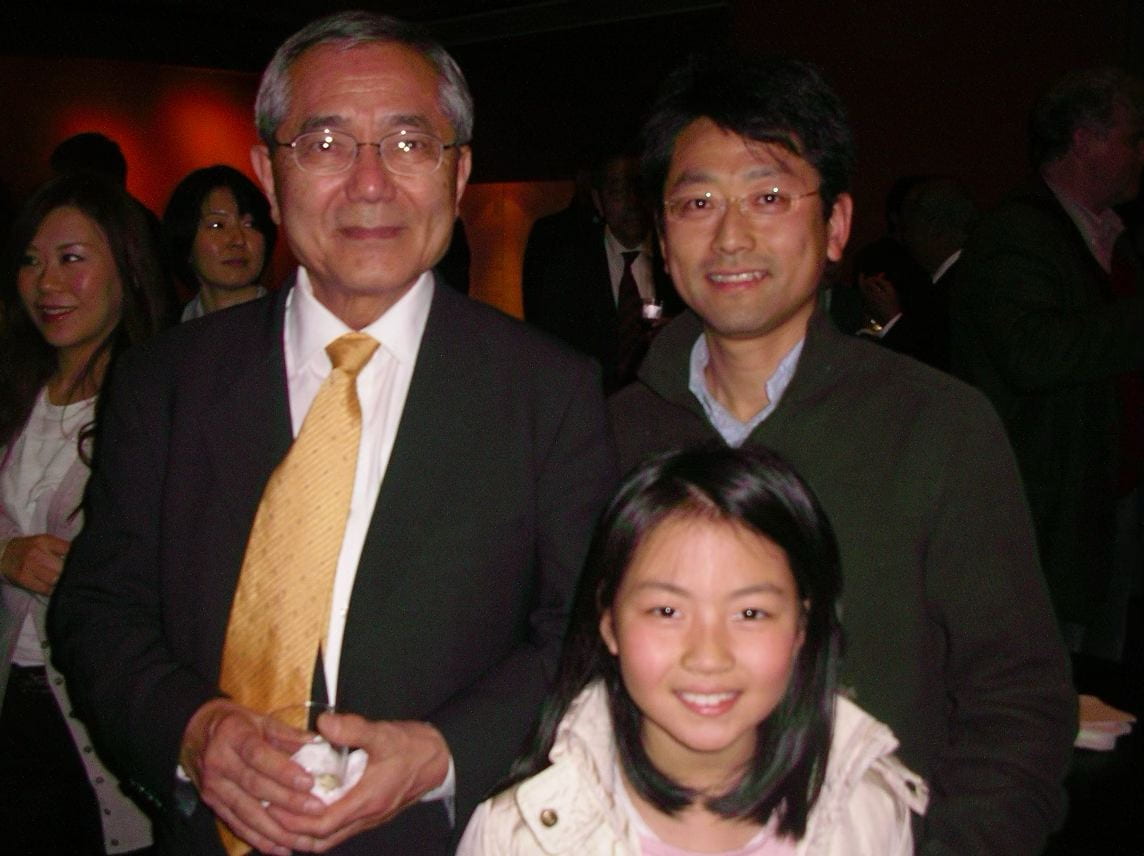
Yoshida’s interest in medicine can be traced back to her days in elementary school. Initially, she had an enthusiasm for biology, and it was deftly nurtured along the way by the adults in her life. She recalls in her earliest formative years how she loved watching nature documentaries on television and how her parents encouraged her to watch as many as she could. They also made sure Yuki spent a lot of time outdoors and gave her a chance to raise pets like turtles, cray fish and goldfish.
Her father took that support even further when there was a chance to hear a renowned scientist speak.
“It was either during first or second grade when my dad heard about a Nobel Laureate, Dr. Ei-ichi Negishi coming to New York city,” Yoshida said. “My dad said, ‘If you want to be a scientist in the future, let’s go to this talk and see if he can inspire you.’”
Negishi’s speech hit the mark and helped put Yoshida on the path to Penn State and Schreyer Honors College. Another important landmark along the way was Penn State’s Scientist in Residency program. As a first-year student in high school, Yoshida and nine biology classmates were selected to spend time at University Park learning what it’s like to learn in a laboratory.
She said while they didn’t set any hypotheses or work on an actual research project, the introduction to biological techniques like DNA replication captured her attention. It also steered her towards the molecular side of biology and biochemistry rather than ecology.
Not long after completing that program, Yoshida connected with Professor Yang and began working on her review paper. Over the course of nearly three years, Yoshida read research papers and experiments published by scientists, and eventually published her findings in the journal Engineered Regeneration in a paper titled, “Novel metal nanomaterials to promote angiogenesis in tissue regeneration.”
“My goal with the paper was to summarize the research around different metals and nanomaterials and what effect they had on blood vessel formation in the body,” Yoshida said. “We also talked about when different cell signaling pathways are involved these materials could impact cancer therapy.”
The completed paper is something that Yoshida reflects on with much pride, especially because much of the work was independent. She’s also appreciative of the opportunities for growth that the project afforded her.
“There were tough moments working on the review paper,” Yoshida said. “Having no experience writing a paper or being in a research setting, I really struggled at the beginning to understand what writing a review paper entailed.
“However, I tried not to let the challenges set me back. I proactively scheduled meetings with my mentors and read review papers from various fields to expand my knowledge of what a review paper is supposed to be.”
Now in her third year at Penn State with majors in biochemistry and molecular biology, Yoshida credits much of her success as a Schreyer Scholar to her initial exposure to academic research and Professor Yang’s tutelage through the process. It helped set her up to be ready in her first semester on campus to work in Penn State’s Booker Lab under the direction of John Alumasa, an associate research professor of chemistry.
“He really makes me think about the science,” Yoshida said of her work with Alumasa. “It’s not like he treats me like a research technician who’s assigned to do tasks. He prompts me to think about my experiments and why certain steps are being taken. If I’m not sure of the answer, he doesn’t tell me the answer, he encourages me to go find it.”
In the Booker Lab, Yoshida’s project is allowing her to explore compounds that can inhibit a particular enzyme that causes antibiotic resistance. It’s giving her firsthand experience of what it’s like to perform research in a professional laboratory focused on drug design and enzymology, a field in which she hopes to work someday. That work, and her participation in Penn State’s Presidential Leadership Academy, helped Yoshida earn a prestigious Goldwater scholarship in the spring of 2023. The Goldwater scholarship recognizes undergraduates who show exceptional potential as leaders and recipients receive up to $7,500 to support their growth and continued research in the fields of natural science, mathematics or engineering.
Through all she has achieved in two years with the Honors College, Yoshida is quick to share credit with her parents, mentors and advisors for helping her along the way. Her journey is a prime example of how undergraduates can accomplish great things – like being the lead author of a research paper – with the proper support around them.
